While over 10 million Ukrainians have been forced to flee their homes as a result of Russia's invasion, one former advisor to Ukrainian President Volodymyr Zelenskyy has stayed in Kyiv and is detailing what life is like as a father during a time of war.
Igor Novikov, 39, lives with his wife and two daughters — 2-year-old Masha and 13-year-old Sophia. As the first Russian bombs fell on Ukraine, Novikov never questioned leaving — he would stay, at home, with his family.
"I stayed because my family stayed with me," Novikov told TODAY Parents via Zoom. "One nightmarish scenario I don't even want to think about is my family being away from me in a scenario like this."
Ukrainian men between the ages of 18 and 60 are not allowed to leave the country, and many have joined the Ukrainian defense to fight Russian soldiers. Novikov, however, has decided to aid the fight for Ukrainian independence in a different way, becoming a fixture as a spokesperson on prominent media outlets around the world.
Related: Global donations show support for Ukraine refugees
Novikov says he lost his dad when he was 24. His father lost his dad, Novikov's grandfather, when he was just 2 years old.
"It was difficult, but at least I was a grown-up," he added. "My dad used to tell this story over and over again, that he didn't remember his dad. He remembered a few touches, a few sounds, a few smells, but that was it."
"I want my daughter to remember me," he added. "It's incredibly nightmarish to think about not only being separated in this situation, but the chance she may never see me again."
While together, the family has certainly been shaken by the near-constant bombing and shelling. The walls of their home would shake every time a bomb fell, and Novikov describes the feeling of being near Russian targets as something of a reverb that shakes your very core.
"When the war started everyone ran downstairs, in a state of shock," Novikov said. "That was the first night."
Related: Feeling stressed by the war in Ukraine? How to manage your anxiety
Now, Novikov says life has undeniably changed in ways both big and small and that, for better or worse, his family has learned to adapt to and accept.
"One nuance of war is that you don't sleep too much," he explained. "Your sleep schedules just can't be pre-planned. And in a war zone, your typical pedantic approach to parenthood goes out the window straightaway."
Novikov says he has also started automatically adding "when there's war" in his daily conversations — it has become a common phrase.
"And secondly, when someone asks you, 'How are you?' it sort of has a different meaning," he added. "Instead of saying the usual, 'I'm fine' or, 'I'm having a crap day,' you say, 'I'm fine and I'm safe,' or 'I'm having a crap day, but I'm safe.'"
How his children are coping with the ongoing war in Ukraine
The former advisor to Ukrainian president Volodymyr Zelenskyy says his 13-year-old was in a state of "psychological shell shock" the first few days of the war, while his toddler — too young to understand what was happening — was clearly feeding off her parents' anxiety.
"Everything in (Sophia's) life changed. There's no more school. There's no more seeing friends. The house is dark every night. Mom and dad have that weird anxious look on their face," Novikov said. "People aren't paying much attention to Masha as they used to, so Masha gets in a mood because of that. Our nanny was crying because her house was bombed and she lost relatives. It was hellish."
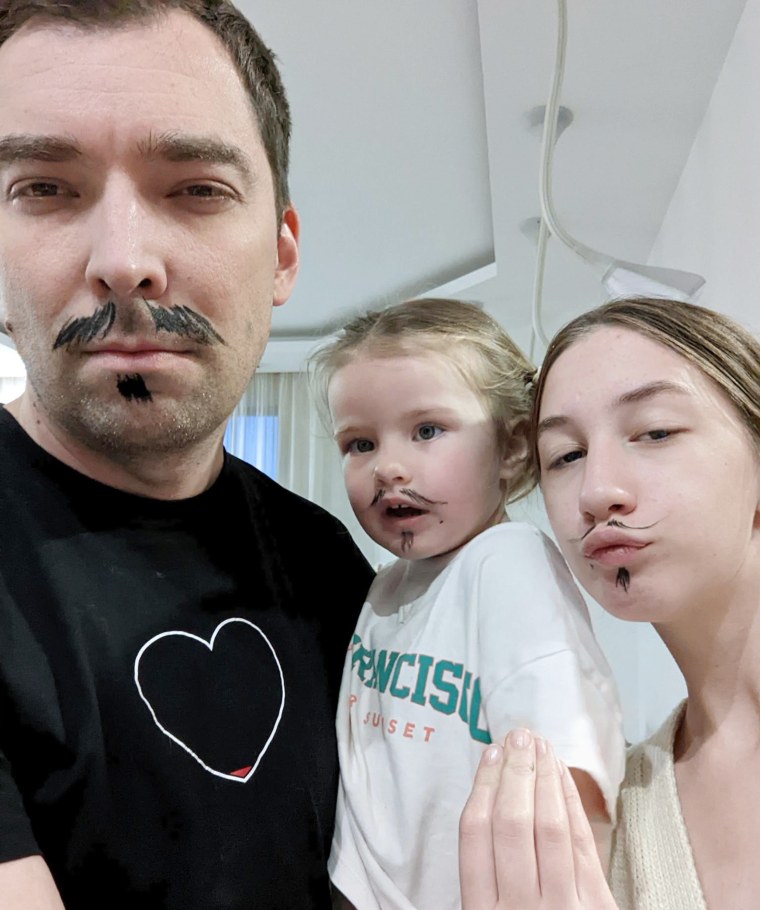
Now that the family has endured 50 days of Russia's war, Novikov says his 13-year-old is no longer in the same psychologically difficult headspace. Like so many Ukrainian children, she has adapted to her current reality.
"Being a teenager can actually come to the rescue," he explained. "They have that strange, very peculiar ability that adults don't understand — they radicalize the message and make it really black and white. She knows we're fighting for freedom; fighting for our country. It's like a soccer game to her: She's rooting for Team Ukraine, and against Team Russia. That's Stage 2."
Related: Desperation, then hope: American ex-military rescue pregnant surrogates in Ukraine
Recently, Novikov says his teenage daughter has moved onto what he calls "Stage 3" of her processing the war, which includes a lot of questions about Russian war crimes.
"The most horrific thing is that she's beginning to lose a friend of a friend as well," he said. "It's like COVID — it's starting to crawl closer and closer to her. Sooner or later, she is going to know that boy or girl who lost their life, and that's very challenging."
Novikov's youngest, however, still does not understand that her country is under attack, and her innocent naiveté does bring some levity to the family's days.
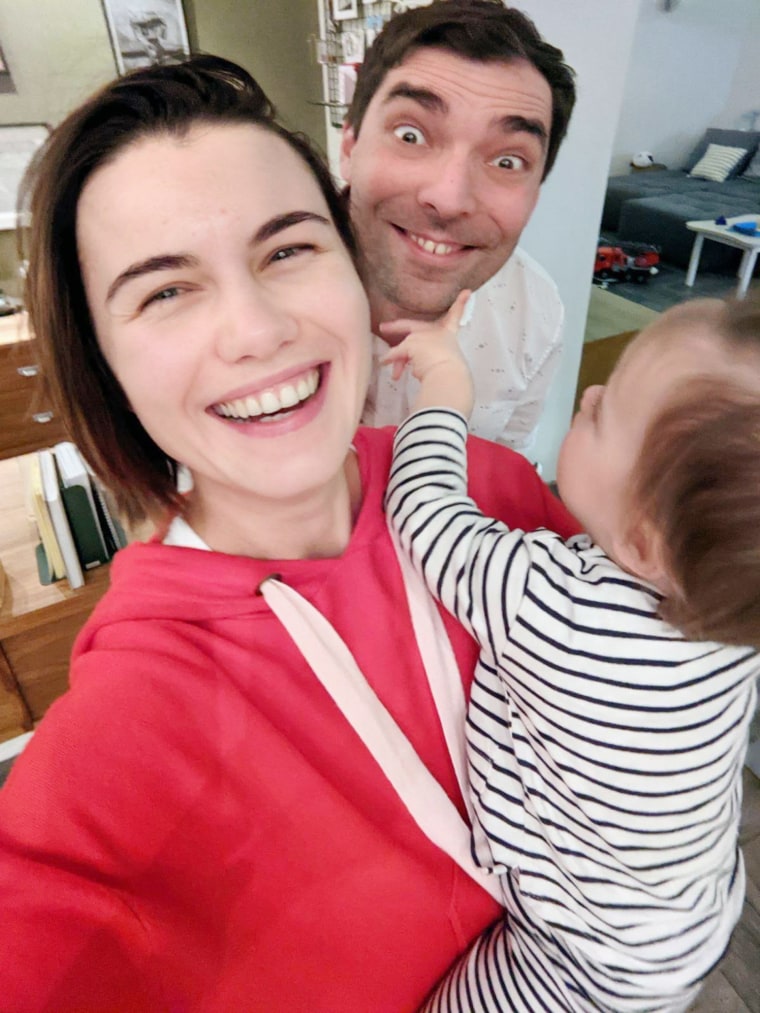
"She's OK with the fact that at night we keep the lights off — that's one of the very noticeable things about living in a war zone," Novikov explained. "So we introduced the concept of Halloween, and at night she looks for ghosts. We got her a little spotlight and everything, and it's really cute if you think about it."
"I wouldn't say the war has had much effect on her, just yet," he added.
How the war is impacting fathers like Novikov and Zelenskyy
Novikov, of course, does comprehend the brutality of Russian forces, especially as additional reports of torture, rape and civilian executions — including the intentional targeting of children — emerge from formerly Russian-occupied Ukrainian towns. As a father, it is these stories, and the images that accompany them, that cut him the deepest.
"In the 21st century, children should not be dying. Full stop," Novikov said.
A reported 148 children have been killed by Russian soldiers since the start of the war, according to the United Nations. That number is believed to be much higher. More than 10,000 civilians are feared to have been killed in Mariupol, according to the city's mayor, Vadym Boychenko.
Knowing President Zelenskyy, Novikov says he sees how the war crimes are impacting him as not only the leader of Ukraine, but as a father himself. In Zelenskyy's eyes, Novikov sees his own.
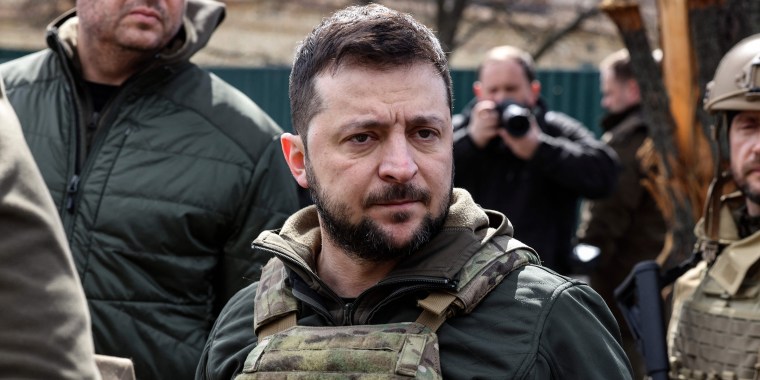
"I see that look on his face and recognize it because I do look in the mirror sometimes as well," he added. "And what's terrible is how you process it. He takes responsibility for every single life and every single death in this country, and that's a f--- of a weight to carry. I can count the fingers on one hand the number of people who can carry a weight like that."
Prior to the war, Novikov had private conversations with Zelenskyy, in which he lamented about his inability to spend as much time with his family as he used to. He imagines that now, as the president is separated from his wife and two children because of the war, he misses his family immensely.
"I could say that if I was in his shoes I'd also be like, 'I don't need a ride, I need ammunition; f--- Putin; come and get me.' But I have no clue what I would do," he added. "Especially since I'm a father, and I want my youngest daughter to grow up knowing who I am."
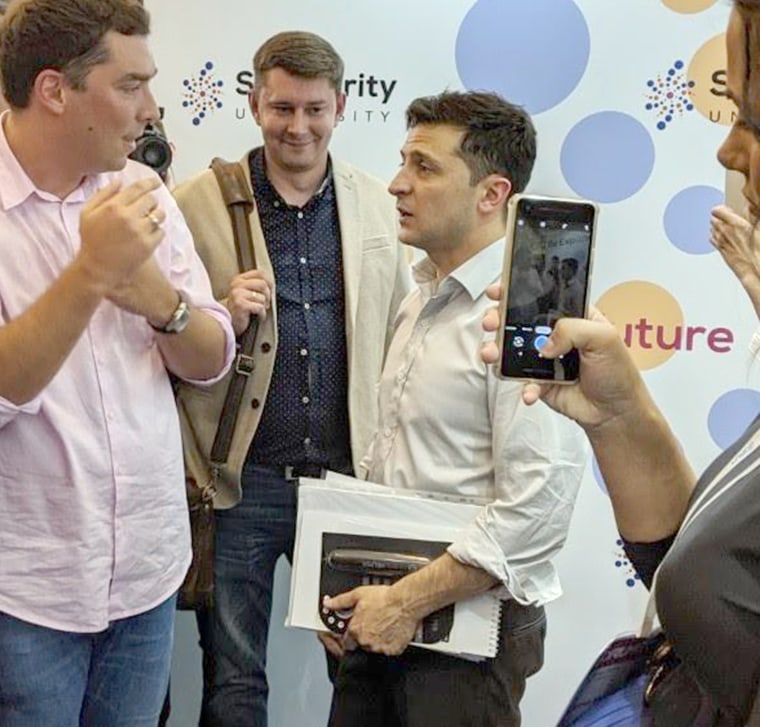
The benefits of being a father during war time
While parenting in the middle of a war is difficult, to say the least, Novikov also credits his being a father for keeping him calm during such a fraught, heartbreaking time.
"I'm incredibly grateful to my family for the fact that I'm a dad," he said. "By default it makes you grow up. When this thing all started, my basic instinct was to go pick up a gun and fight. I wanted to go be aggressive. But can I fight? Probably not as well as professional soldiers. And I'm the idiot who tore a ligament 10 years ago."
Related: Why one Ukrainian mom wrote family contact information on her daughter’s body
Novikov says that because of his family, he found another way to fight, and is regularly appearing on various media outlets to help spread the word about Russia's invasion and the truth about what Russian soldiers are doing to his country.
"You just figure out what you can do better, when you're a dad," he added. "It just, you know, took me about a day and a half to grow up a bit."
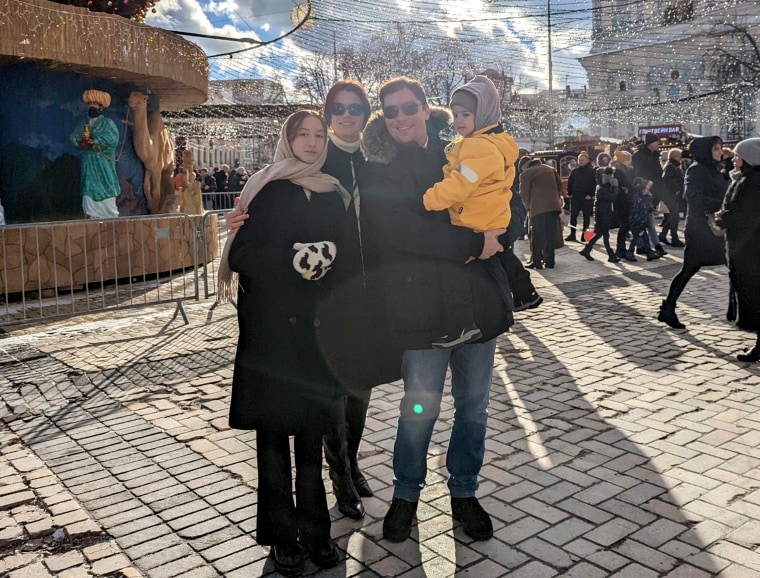
Simply looking at his children also helps center Novikov, especially on particularly difficult days when Russian bombings are more intense or a horrific report of war crimes is unearthed.
"Anyone who has kids and actually loves their kids knows that they charge you as much as you charge them," he said. "With them it's easy. Whatever is happening, whatever you have just seen or heard, even if there's an explosion, you see your kids — they look at you and you look at them — and it all goes away."
Still, the war has undoubtably taken a toll on everyone's mental health, and for the first time Novikov and his wife are considering leaving, temporarily, for some reprieve.
Related: Fleeing war in Ukraine without their parents, an older sister takes on a mother’s role
“In the beginning of the war, I had chats with my wife and said there’s no need to run and everything. We stayed through the worst of it," he said. "But now — if we have an opportunity and it's quiet and we're not betraying our country or home — we're going to take a week or two week break."
"That's one of the things I'm really worried about — a lot of people are going to have serious psychological problems in this country," he added. "At the end of it, you're going to have an entire country with PTSD."
Related:
